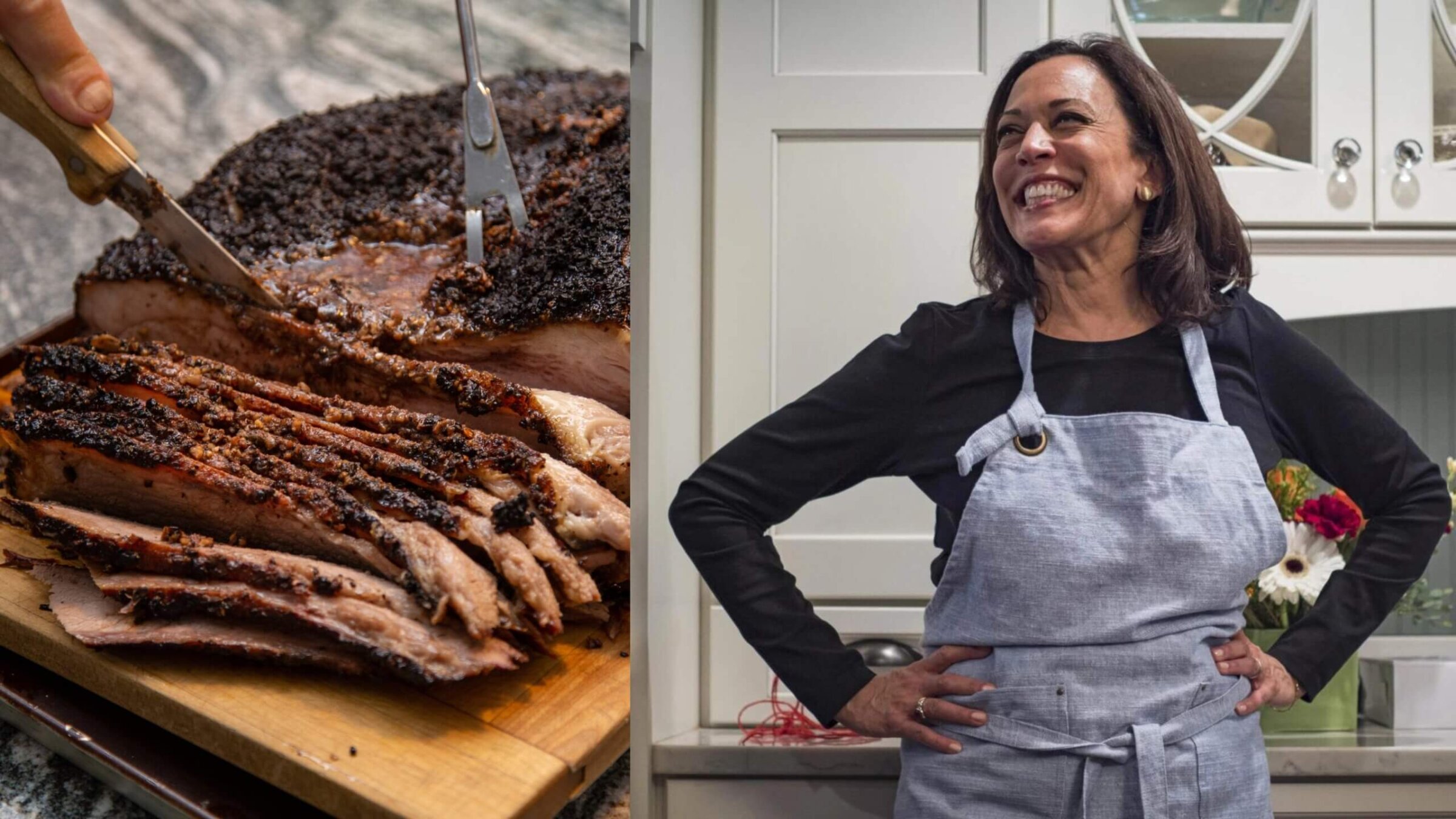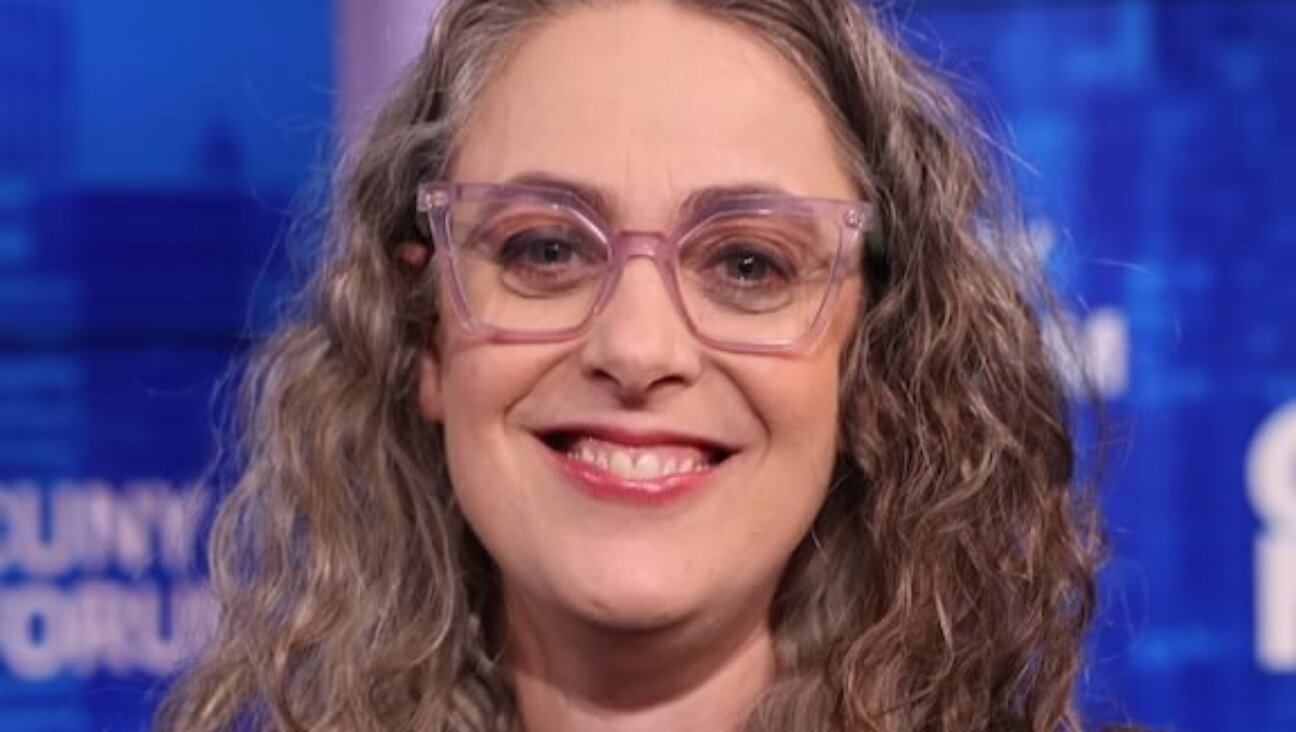Why won’t Kamala Harris talk about her brisket?
Doug Emhoff praised his wife’s “mean brisket” at the DNC. I investigated.

The Vice President has cooked with teenagers and movie stars. But she’s mum about our favorite Jewish holiday meat. Courtesy of Yahoo News / YouTube/ Canva
There are a lot of big, important questions looming over this historical presidential campaign. Abortion. Immigration. Israel. Democracy. But before the November election come the Jewish holidays. And I suspect I’m not the only one wondering: What’s Vice President Kamala Harris’ brisket recipe?
Reader, I’ve been trying to find out ever since her Jewish husband, Doug Emhoff, invoked it in his Democratic National Convention speech: “She makes a mean brisket for Passover that brings me right back to my grandmother’s apartment in Brooklyn,” he said. “You know, the one with the plastic-covered couches.”
My mouth was watering. Next morning, I sent a barrage of text messages. To the Harris campaign’s Jewish liaison. To Emhoff’s spokesfolk. To the head of the Jewish Democratic Council of America, Halie Sofer, who famously accompanied Harris and Emhoff on a trip to Israel. To a Chicago macher who is a major Democratic fundraiser.
I got back bubkes. (Not babkas, the bread of chocolaty deliciousness; bubkes, Yiddish for “nada.”)
It’s not like Harris is shy about her love of cooking. Back when she first ran for the Democratic presidential nomination in 2020, her campaign produced a whole “Cooking with Kamala” YouTube series that has gotten new life this summer. She made “monster cookies” with a teenager in Iowa and dosas with the actress Mindy Kaling. She cooked with celebrity chef Tom Collicchio and José Andrés of World Central Kitchen.

She has made fun of Senator Mark Warner’s tuna melts and her running mate Gov. Tim Walz’s “white people tacos” (which may be the same thing). She apparently snuck out of debate prep to shop for spices. There is a whole TikTok channel devoted to Kamala talking about food.
Just not about the brisket.
I am not prone to conspiracy theories, and certainly not accusing anyone of antisemitism. But it does feel like a conspicuous absence. Emhoff is everywhere, talking about how Harris has helped him reconnect with his Jewishness, partly via this brisket, and yet we have no idea if she slices thin or thick, uses tomato-based sauce or more brown gravy, sears first, uses a slow-cooker, has one of those crazy recipes involving Coca-Cola.
I tried the Chicago macher again. “That’s a hard assignment,” he texted back. “State secret.”
After Padma Lakshmi, the author and former host of Top Chef, wrote in The New York Times about how Harris’ strengths as a cook relate to her strengths as a leader, I tried the campaign again. The Emhoff people I’d been dealing with passed me over to Ernesto Apreza, the vice president’s press secretary. He called me right back — to say no.

“A lot of times these recipes are things that are very personal to the vice president,” Apreza told me, mentioning something about passing them on to Emhoff’s children, Cole and Ella.
Forget the recipe, I said. How about just a little backstory? When did she start making the brisket, who taught her, where does the recipe come from, does she only make it on Passover or also for, say, Rosh Hashanah?
I’m still waiting to hear back. In the meantime, I’ll be making the brisket I’ve been making for the last 20 years — a recipe from my sister’s husband’s late mother, Carol. It’s not even really a recipe, but I’m certainly not shy about sharing it:
Salt and pepper the meat and sear it on the stove. Dump equal parts cranberry sauce, pizza sauce and onion soup mix (like one, two or three cans, jars and packets of each) on top, cover with foil, and cook low and slow for at least two hours but much more as desired.
Ideally, make this days ahead, and store sauce and meat separately in the fridge. Before serving, slice the meat while cold. Remove fat from the top of the sauce and reduce it on the stove, then pour over the sliced meat and reheat as needed.

















